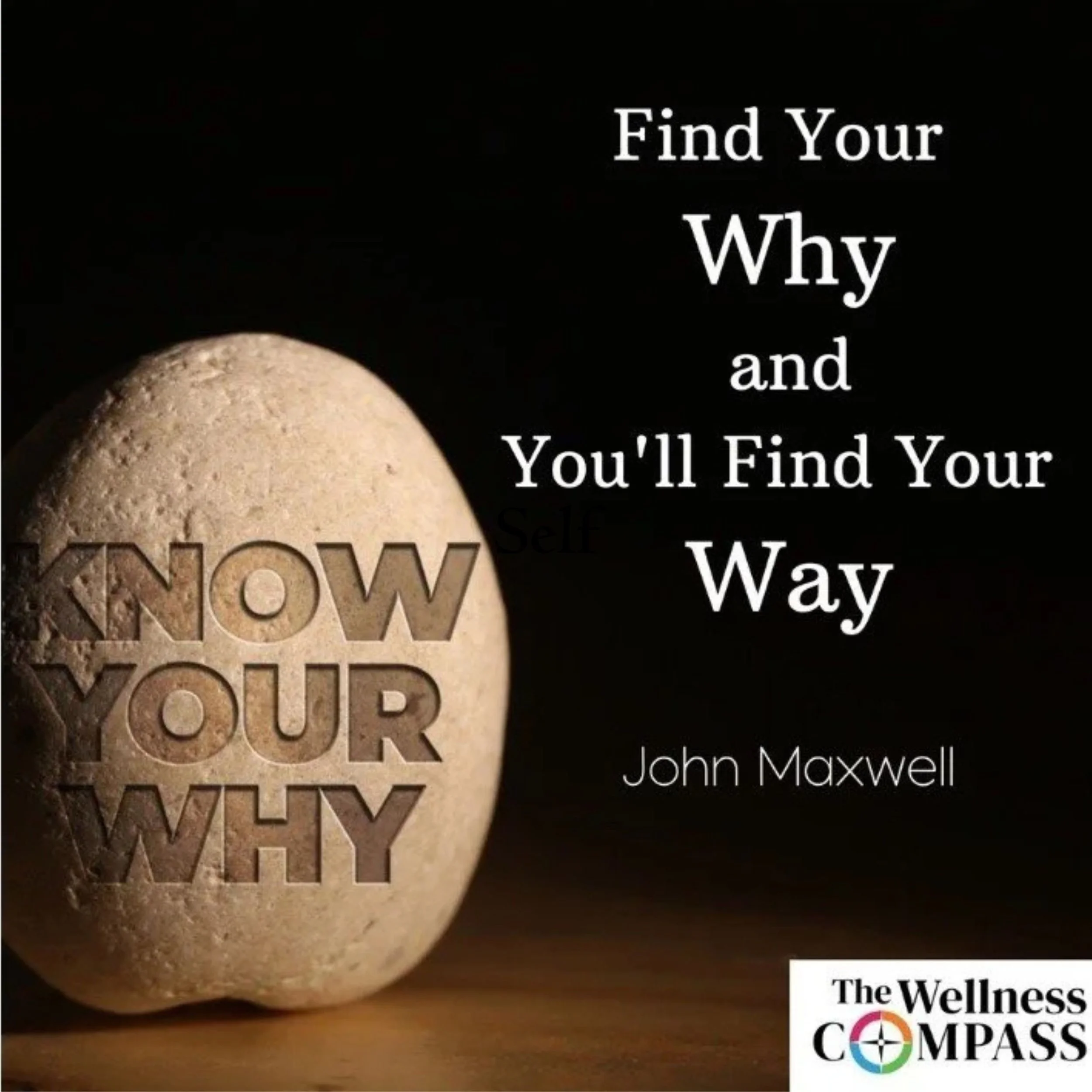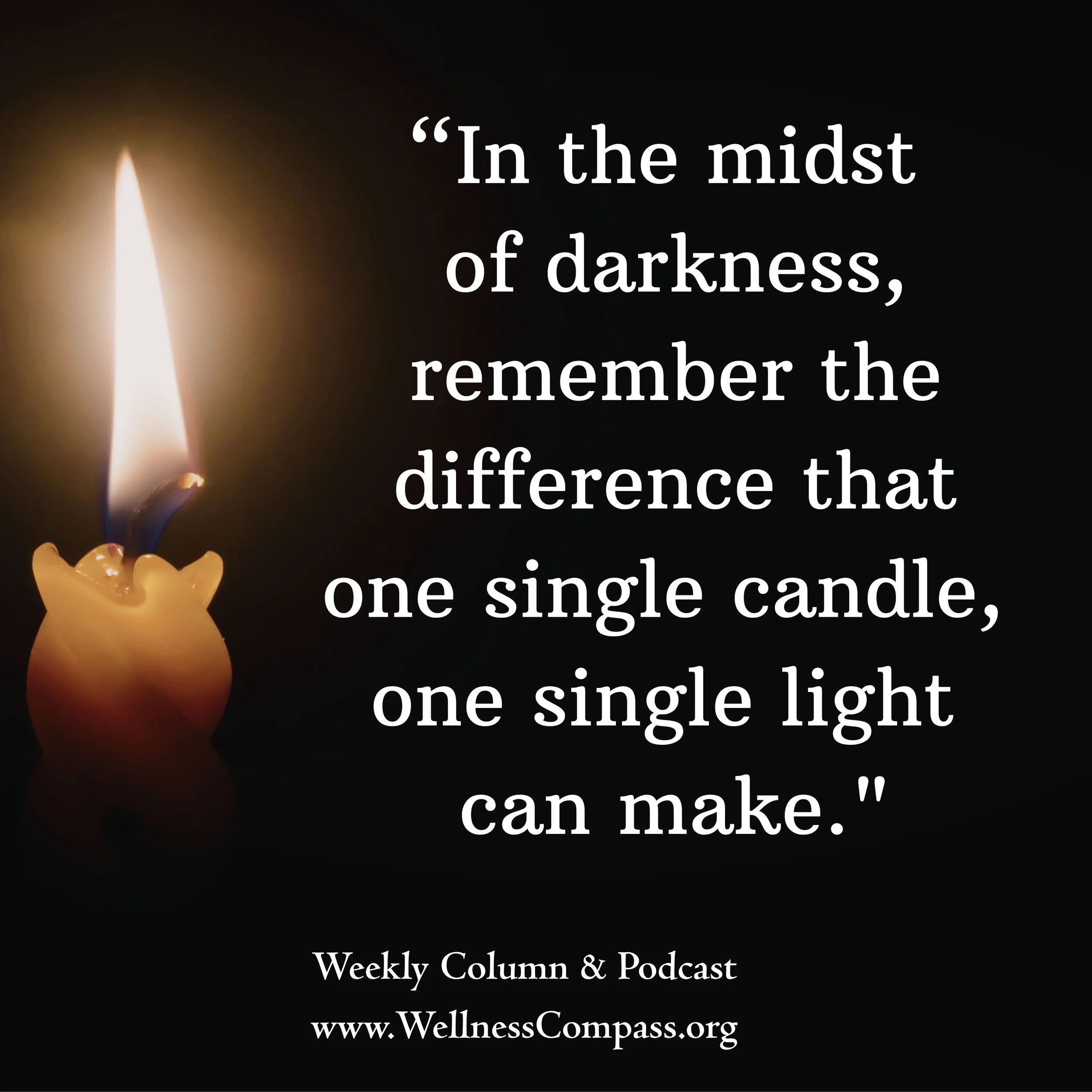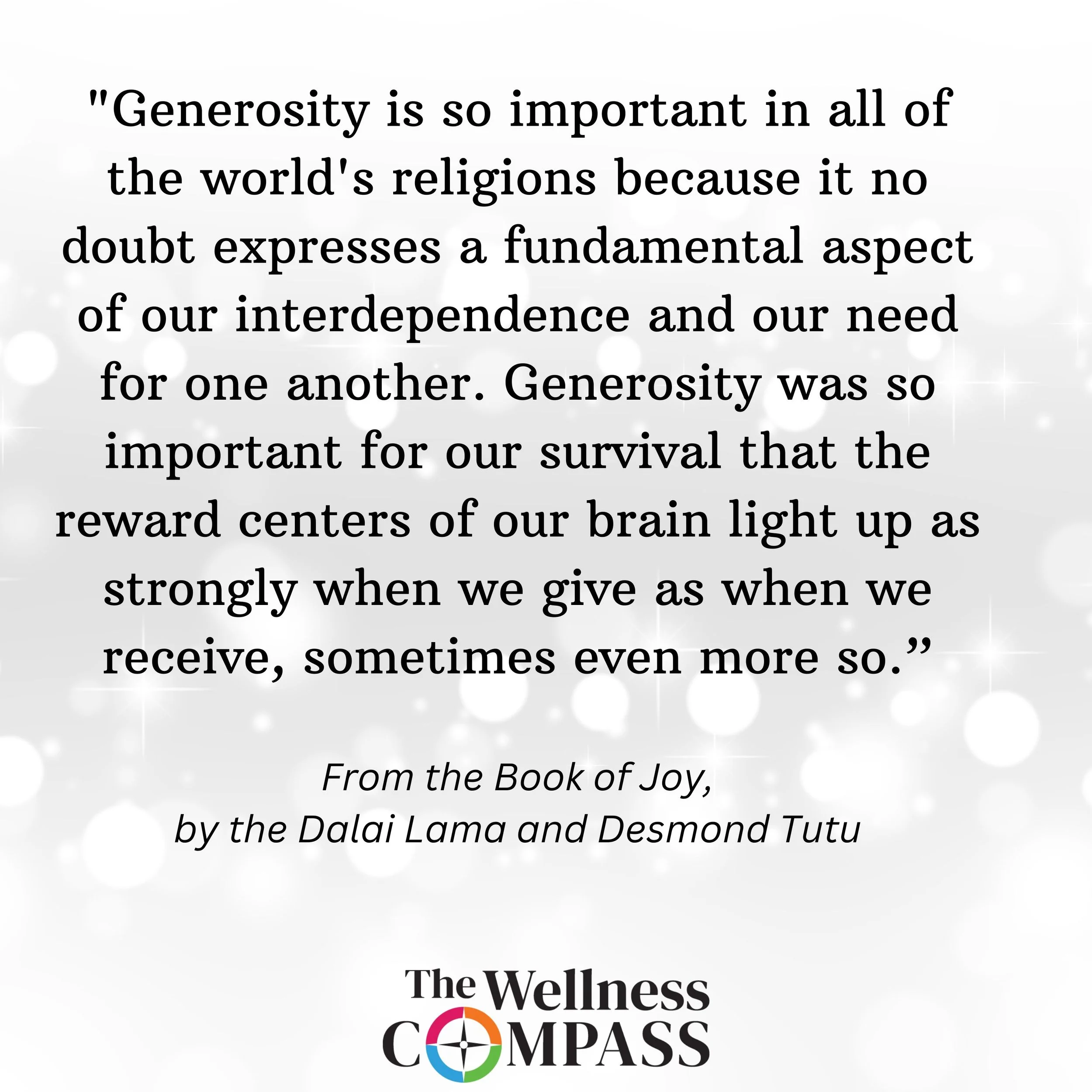Start With Why
The Wellness Compass Initiative is our partner community wellness initative that serves schools, counseling centers, nonprofits, universities, and other community wellness organizations. Each week Holly Hughes Stoner and Scott Stoner, who are both licensed marriage and family therapists, co- write a column for Wellness Compass and we are pleased to share it here on our Living Compass site. There is also a Wellness Compass podcast, where Scott and Holly elaborate on the topic of this column each week, at www.wellnesscompass.org/podcast. or in any podcast app (Apple, Google, Spotify, etc).
Start With Why
(Part 2 of an Updated 6-Part Series on
Understanding Growth & Change)
Most attempts to make a change will fail if they are not connected to a clear "why"—a clear reason for making the change. The "why" is the root system that grounds and nurtures change. Without a strong root system, most attempts at change will wither or die out altogether. For example, if a person makes a New Year’s resolution simply because it’s the popular thing to do, there is a good chance that resolution won’t stick. If, however, a resolution is grounded in a compelling why, it has a much greater chance of lasting.
Author Simon Sinek writes extensively about change. He says most people focus only on the "what" and "how" of a change they want to make, and forget the most essential part—connecting with their "why." For example, a person might decide they want to spend less time on their screens. That's their "what." They may even have a "how"—a plan for doing this. But unless they articulate the deeper "why," their attempt to limit screen time will likely be short-lived. If, however, they can identify why they want to spend less time on screens—to connect more meaningfully with others, pursue other activities, or get more sleep—then there's a greater chance they'll make a lasting change.
All great leaders inspire and facilitate change with a clear "why." Archbishop Desmond Tutu, who passed away in 2021, received the Nobel Peace Prize for his tireless work to end apartheid in South Africa. The “why” that kept him going, even when facing seemingly insurmountable barriers, was his belief that all people are created equal and that the freedom and dignity of every individual must be affirmed and honored. What he did and how he did it evolved and adapted to changing circumstances, but his "why" never wavered. His “why” sustained him his entire life. Such is the power of knowing and connecting with our deeper "why."
This principle has guided a significant change in our own work. Before COVID, our main strategy for our nonprofit Wellness Compass Initiative centered on creating print resources and traveling around the country doing in-person trainings. This approach was effective and personally rewarding, and while it helped us reach thousands of people, its scalability was limited. When COVID hit, we were forced to pivot—developing digital downloads and moving all our trainings and meetings online. Initially, we made these changes simply because circumstances required it.
But here's where the "why" became essential. As the world reopened, we faced a choice: return to our familiar pre-COVID methods or embrace the challenging work of continuing to grow these new digital strategies. We could have easily justified going back to what we knew best. Instead, we chose to press forward with learning new technologies like podcasting and expanding our digital reach. Why? Because our deeper purpose has always been to expand access to wellness resources for as many people as possible.
The changes have been challenging. There's a learning curve to new technology, and we miss the warmth of in-person gatherings. But our reach has expanded in ways we never imagined. Now we are reaching many tens of thousands of people Before COVID, we ran Wellness Circles in person in our local geographic area. Now we facilitate five times as many Wellness Circles, regularly welcoming participants from Europe, South America, and other parts of the world, as well as people just down the street from where we live and work. Our "why"—making high quality wellness resources accessible to organizations and individuals who need them—gave us the motivation to persist through the challenges that change always brings.
Making It Personal
Can you think of a change you have already made in your life that was fueled by a clear “why”? How did it go?
Is there a change you want to make, or are making now, that would be strengthened by connecting it more clearly to a “why"?
What is your "why" for the change you are aspiring to make and how might identifying that help motivate to stick with it?
Subscribe Now to Weekly Words of Wellness:
Click the button below to signup for the e-mail version of Weekly Words of Wellness. This weekly article can be shared with your community electronically and/or used for group discussion.
You can unsubscribe at any time.




